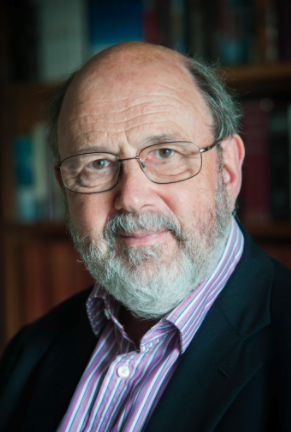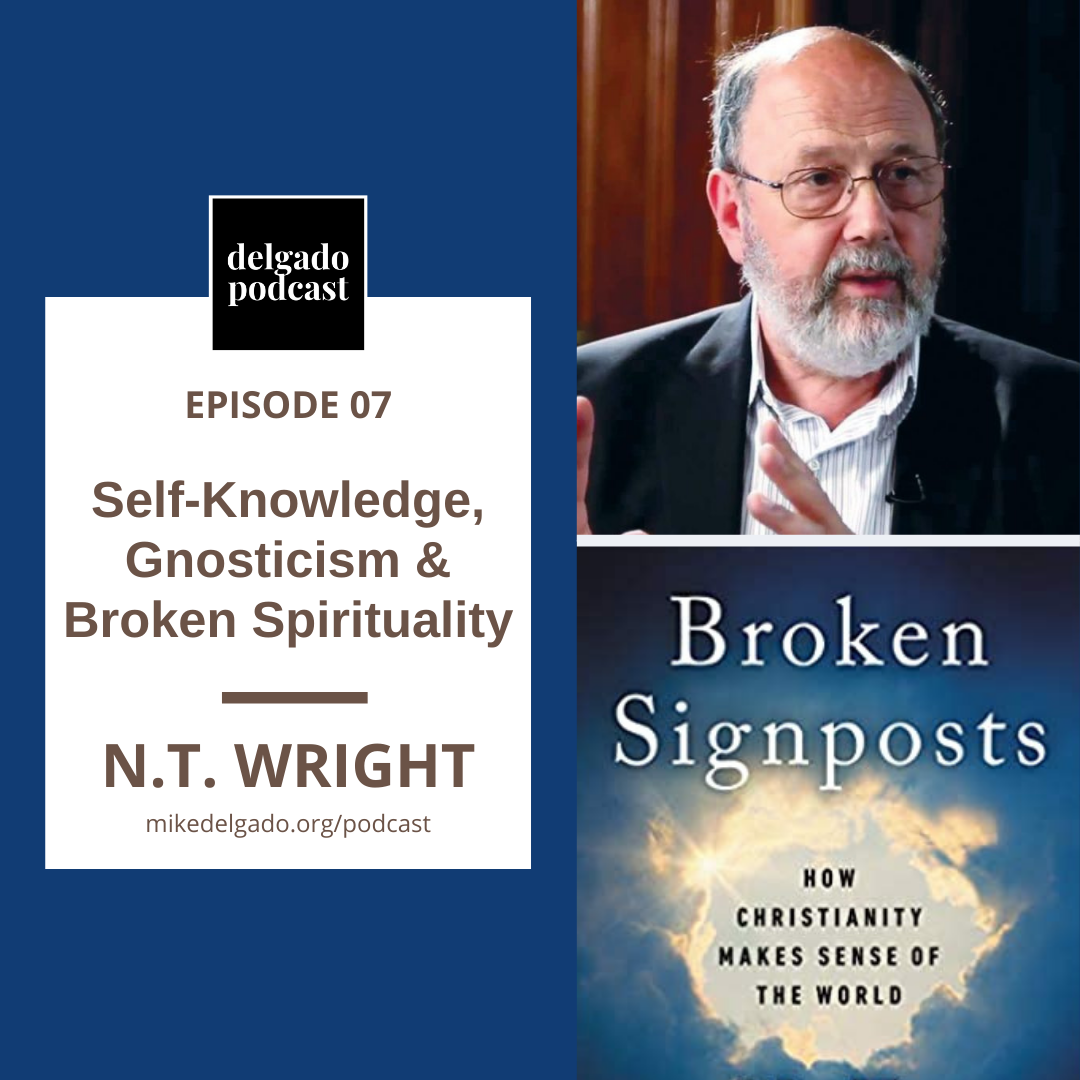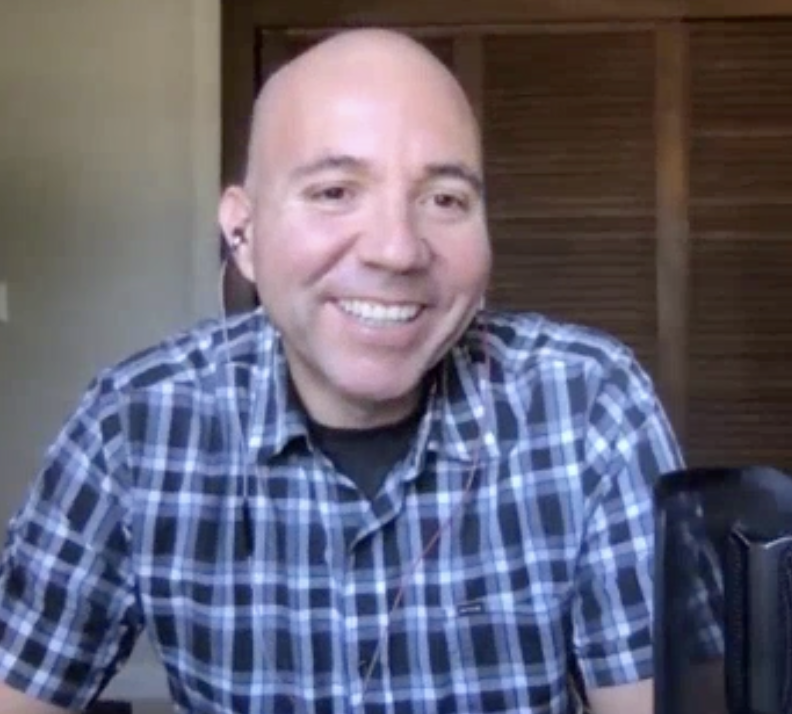 We’re grateful for the opportunity to learn from N.T. Wright about his latest book “Broken Signposts: How Christianity Makes Sense of the World,” which provides us insights into seven ways to read the Gospel of John through the lenses of justice, beauty, love, freedom, truth, power and spirituality.
We’re grateful for the opportunity to learn from N.T. Wright about his latest book “Broken Signposts: How Christianity Makes Sense of the World,” which provides us insights into seven ways to read the Gospel of John through the lenses of justice, beauty, love, freedom, truth, power and spirituality.
In the book, Dr. Wright shares ways how each of these themes have become fractured in society (and in ourselves) and ways for us to find healing and redemption amid our brokenness.
We had a chance to talk with Dr. Wright about his motivations for writing this book — as well as a focused discussion around broken spirituality, contemplative prayer practices, the benefits of having a spiritual director, and steps for reading the Bible critically and devotionally.
You can subscribe or download this episode on iTunes, Spotify, Google Podcasts or Stitcher. You can also watch or subscribe to the video series on YouTube.
Overview of the podcasts:
Part 1: Self-Knowledge, Gnosticism & Broken Spirituality (EP07)
In this episode, N.T. Wright discusses his motivations for writing “Broken Signposts” and shares insights into ways spirituality has become fractured in society, along with a rise in gnosticism and narcissism. He also discusses ways to practice healthy forms of spirituality — and the importance of regular prayer. At the end of the episode, Wright provides insights into ways to understand our Bible and the need for prayer and guidance from the Holy Spirit.
Listen or download episode:
Part 2: Spiritual Direction, Dealing with Dark Nights & Psalm Reading (EP08)
This episode is focused on understanding the benefits of working with a spiritual director — and ways they can assist us in understanding how God may be working in our lives. Spiritual directors can track your spiritual seasons and assist during dark nights of the soul and periods when you are feeling broken or distraught. Dr. Wright also shares why daily Psalm reading is a helpful practice to see the spiritual highs and lows that are part of the Christian life.
Listen or download episode:
Some takeaways:
- Wrong spirituality breeds narcissism. N.T. Wright shares how seeking to understand ourselves (e.g. personality tests, enneagram, Myers-Briggs, etc) can be very helpful, but we need to be mindful of how spending too much time focusing on ourselves can lead us into narcissism. Introspection and scripture meditation should lead us to want to know more about God — not ourselves.
- There are many types of prayer and meditation practices to consider for your spiritual growth. Some types of prayer practices might not be helpful to you — or cause you to fall asleep or even get bored. Introverts and extroverts might find some forms of prayer easier than others. Explore and experiment with different prayer practices to see what works best for you. There are walking prayers, prayer desks, praying through the Psalms, prayer journals, etc. Find out what works best for you as your prayer life evolves.
- Reading the Bible critically and devotionally should be part of our spiritual experience. Dr. Wright talks about how our readings of the Bible can flow into critical analysis and spiritual insights at the same time. We should read the Bible with both of these lenses to help us get the most value from our Bible reading time.
- Keep a journal open during Bible readings to jot down passages that don’t make sense. Anyone reading the Bible is going to uncover complex and complicated passages that are difficult to understand. Dr. Wright suggests keeping track of those passages in a notebook so you can explore those passages in more detail. There are plenty of commentaries and study tools to help you see different points of view on those passages.
- Finding and working with a spiritual director can assist us in self-discovery and understanding on how God may be working in our lives. Spiritual directors are like spiritual therapists that can ask the tough questions and point us to areas in our life that we need to spend time thinking about. Spiritual directors can also see ways that God may be working in our lives right now (and we just don’t see it). They can also help us during the dark nights of the soul or when we are feeling depressed and/or spiritually broken.
- Psalm reading should become a regular part of our daily devotional periods. N.T. Wright talked about how important Psalm reading is for understanding the seasons of the Christian life. There are Psalms of praise and worship and Psalms of lament and despair. These are all part of the canon of Scripture that have been passed along for us to read and remember. Many Psalms are fairly short and it’s possible to read through all the Psalms once a month, which will help the themes and words become more memorable.
Video of part one of our conversation:
Video of part two of our conversation:
Growth Questions
Dr. Wright challenges us to practice regular prayer and readings of the Bible — especially the Psalms. He says that he created this daily habit as a young boy. Have you ever set a personal goal to spend time in prayer or Bible reading daily? Let me know in the comments about some of the challenges and benefits of having a regular time for prayer, study and meditation.
N.T. Wright
Nicholas Thomas Wright taught New Testament studies for 20 years at Cambridge, McGill, and Oxford Universities and served as the Bishop of Durham from 2003 until his retirement in 2010. He now serves as chair of New Testament and Early Christianity at the School of Divinity at the University of St. Andrews.
Considered one of the world’s leading Bible scholars, he has been featured on ABC News, The Colbert Report, Dateline, and Fresh Air. Wright is the award-winning author of Simply Good News, Simply Jesus, Simply Christian, Surprised by Hope, How God Became King, Scripture and the Authority of God, Surprised by Scripture, and The Case for the Psalms, as well as the recent translation of the New Testament The Kingdom New Testament and the much heralded series Christian Origins and the Question of God.

Check out more episodes from the Delgado Podcast.
To keep up with this weekly podcast series featuring academics, authors and artists who challenge us, you can get updates on Instagram and Twitter or subscribe to the video interviews on YouTube. Reach out with any suggestions for authors to feature, topics to discuss and share your thoughts on an episode.

